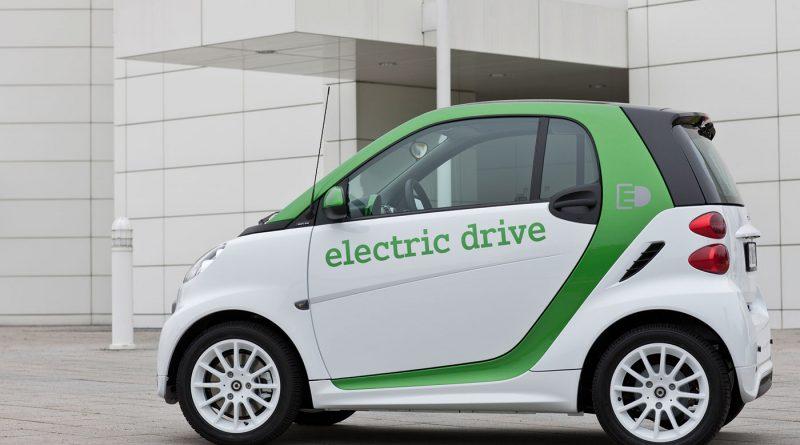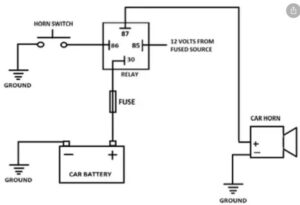In today’s world where fuel efficiency and environmental consciousness are of utmost importance, the MPG (Miles Per Gallon) of a car has become a crucial factor to consider before purchasing a vehicle. When it comes to compact cars, the Smart Car, also known as the Smart ForTwo, is one that often catches people’s attention due to its unique design and small size.
So, how many MPG does a Smart Car get? Let’s dive into the specifics and explore the fuel efficiency of this distinctive vehicle.

Credit: carfromjapan.com
Fuel Efficiency of Smart Cars
The Smart Car, with its compact size and lightweight construction, offers impressive fuel efficiency. The exact MPG of a Smart Car depends on various factors such as driving conditions, road terrain, driving style, and the specific model of the car. On average, a Smart Car can achieve around 40 MPG.
It’s important to note that the MPG can vary between different models and engine types of Smart Cars. The Smart Car comes in both gasoline-powered and electric variants, and the electric models have higher MPG equivalents due to their use of electricity instead of gasoline.

Credit: www.way.com
Advantages of Smart Car’s Fuel Efficiency
The Smart Car’s fuel efficiency provides several advantages to its owners:
- Cost Savings: With better MPG, the Smart Car proves to be cost-effective in terms of fuel consumption. It requires less frequent visits to the gas station, which translates into significant savings in the long run.
- Environmentally Friendly: The higher MPG of a Smart Car means reduced emissions, contributing to a cleaner environment and lower carbon footprint.
- Convenience: With better fuel efficiency, the Smart Car allows for longer distances per tank, providing increased convenience and less frequent refueling stops.
Factors Affecting MPG in Smart Cars
Several factors can affect the MPG of a Smart Car:
- Driving Conditions: Heavy traffic, stop-and-go driving, and uphill terrains can decrease the MPG of any vehicle, including Smart Cars.
- Driving Style: Aggressive driving with frequent acceleration and high speeds can decrease the MPG of a Smart Car. Maintaining a smooth and moderate driving style ensures better fuel efficiency.
- Vehicle Maintenance: Proper maintenance, including regular oil changes, air filter replacements, and tire inflations, can help optimize the MPG of a Smart Car.
Frequently Asked Questions Of How Many Mpg Does A Smart Car Get
How Much Does It Cost To Fill Up A Smart Car?
The cost to fill up a Smart car can vary depending on factors such as gas prices and the size of the gas tank. On average, it costs around $20 to $30 to fill up a Smart car, which has a gas tank capacity of about 8-10 gallons.
This can give the Smart car a range of approximately 200-300 miles per tank, depending on its fuel efficiency.
How Many Miles Does The Smart Car Get?
The Smart car gets around 40 miles per gallon (mpg), making it a highly fuel-efficient vehicle. With its small size and efficient engine, it offers great mileage for city driving as well as highway journeys. Whether you’re looking to reduce your carbon footprint or save money on fuel costs, the Smart car is a smart choice.
What Is A Disadvantage Of A Smart Car?
A disadvantage of a Smart car is limited space. The tiny size of a Smart car makes it difficult to fit more than one passenger, making it unsuitable for group travel.
What Is The Top Speed Of A Smart Car?
The top speed of a Smart car is about 90 miles per hour. It is known for its compact size and fuel efficiency. The Smart car is a popular choice for urban areas due to its small footprint and easy maneuverability.
How Many Miles Per Gallon Does A Smart Car Get?
A Smart car typically gets around 40 mpg, making it an efficient choice for fuel-conscious drivers.
Conclusion
Overall, the Smart Car’s fuel efficiency is commendable, with an average MPG of around 40. Its compact size and lightweight construction contribute to its impressive fuel consumption capabilities. Owning a Smart Car not only offers cost savings but also promotes eco-friendliness.
It’s essential to consider the specific model and engine type of a Smart Car when evaluating its MPG, as these factors can vary the fuel efficiency. By practicing good driving habits and maintaining the vehicle properly, Smart Car owners can maximize their MPG and enjoy the benefits of a fuel-efficient ride.




